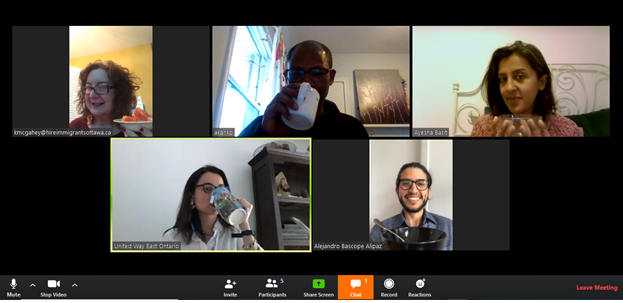We are living in uncertain times. The increasing impact of the coronavirus (COVID-19) has affected every facet of social and economic life across the world in a scale never seen before. Organizations are implementing alternative arrangements, including for employees to work remotely as part of global efforts to mitigate the spread of the virus, as we all practice social distancing.
This time of crisis requires that organizations double down on their inclusive practices. The following are a few ideas for organizations and individuals committed to the work of Diversity and Inclusion in their workplaces.
1. Many employees, particularly newcomers, are likely to be worried about family and loved ones abroad. Accommodation and flexibility will be required for people to take time to deal with the emotional toll of the pandemic, and to get in touch with their families, acknowledging the added complexity of communicating across various time zones. Employers can work together with employees to figure out ways they can support immigrant employees who have families in areas of the world that are more severely impacted.
Tip: Ask your employees how the pandemic is affecting people in their country of origin. Acknowledging that people your employees care about are potentially far away and in different circumstances demonstrates your concern for them.
2. Doing Diversity and Inclusion work when most employees are working remotely may require new ways of thinking and acting. This situation is new to all of us, we are all finding our way. Employers can do quick surveys to get a snapshot of the current situation and find out what employee needs are. Sometimes your own teams might be able to help problem-solve, and it is okay to ask them not only about their challenges, but about what would help to address them. And let’s remember that the basic principles of inclusion still apply, even when working remotely.
Tip: Think about how you can adapt basic principles of inclusion to your employees working remotely.
Using collaborative language is essential in times of crisis.
3. For many people, their workplaces are important socializing spaces – after all, we spend a lot of time at work! For many newcomers, the workplace might be the main opportunity for connecting with others and having a sense of community. The sudden change to working remotely and adhering to social distancing or quarantine can create sudden isolation, disrupt routines, and dismantle workplace-based social bonds. Employers should allow time for an adjustment period, promote check-ins amongst staff, reach-out to newcomers, and give time for people to brainstorm strategies to cope with this new reality.
 Tip: Invite your employees to get creative with using the technology that allows for remote work to also be used for socializing with colleagues in new ways, such as connecting via meeting/SM platforms for informal team coffee breaks or lunches.
Tip: Invite your employees to get creative with using the technology that allows for remote work to also be used for socializing with colleagues in new ways, such as connecting via meeting/SM platforms for informal team coffee breaks or lunches.
4. Working remotely and keeping kids engaged is a daunting task in the best of times and more so in this time of uncertainty when we all must practice social distancing – no play dates and for most newcomers no support from family to take care of their kids. Recent newcomers may not be aware of available resources that they can access to keep their children engaged. Employers can help by providing information about community resources as well as facilitate staff sharing ideas and resources there are using with their newcomer colleagues.
TIP: Most community libraries and museums have online resources that employees can access.
Khan Academy has online learning resources for kids. Share these with your employees.
We are in this together, share the things you are doing as a workplace to support your immigrant employees or colleagues with us at info@hireimmigrantsottawa.ca.
